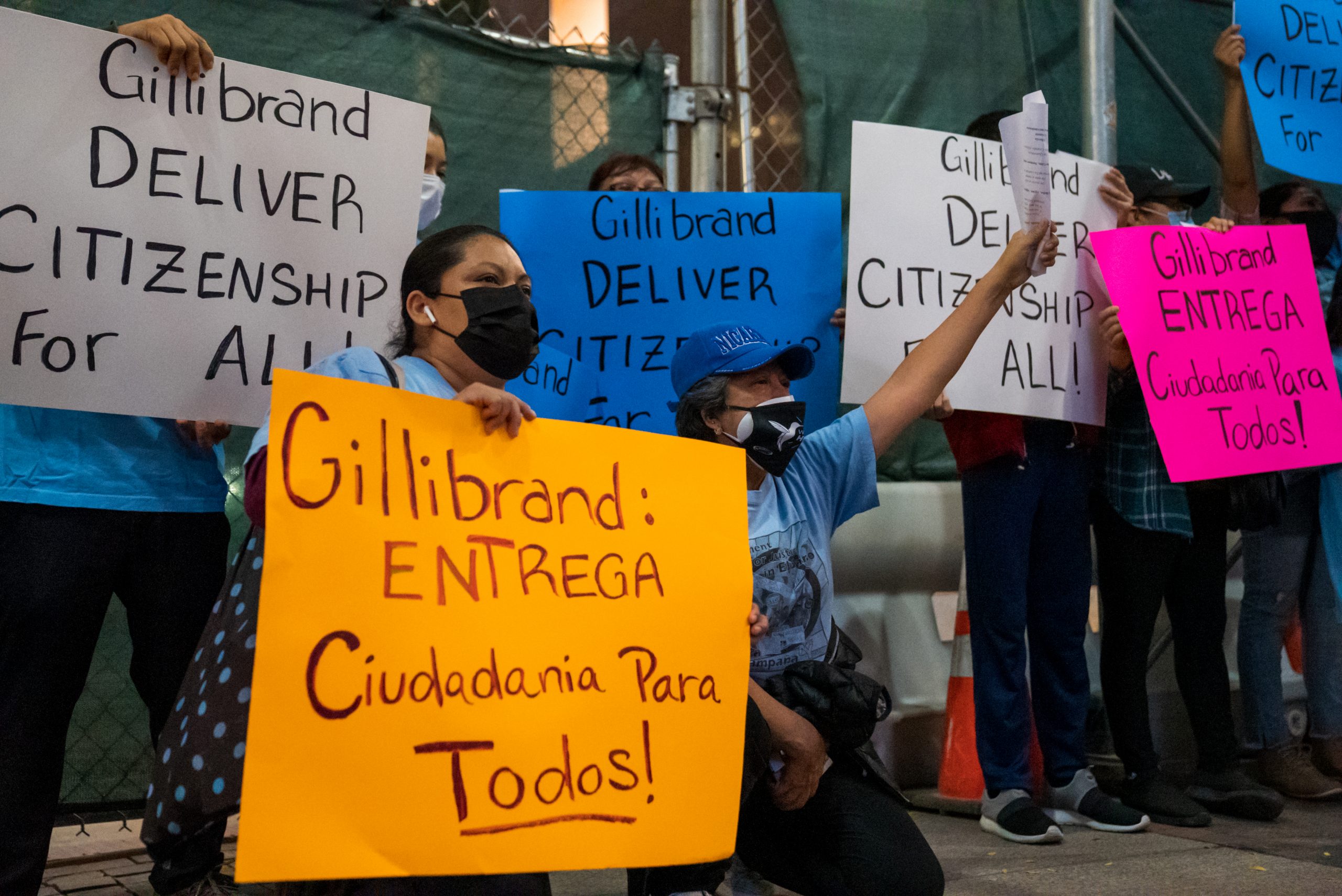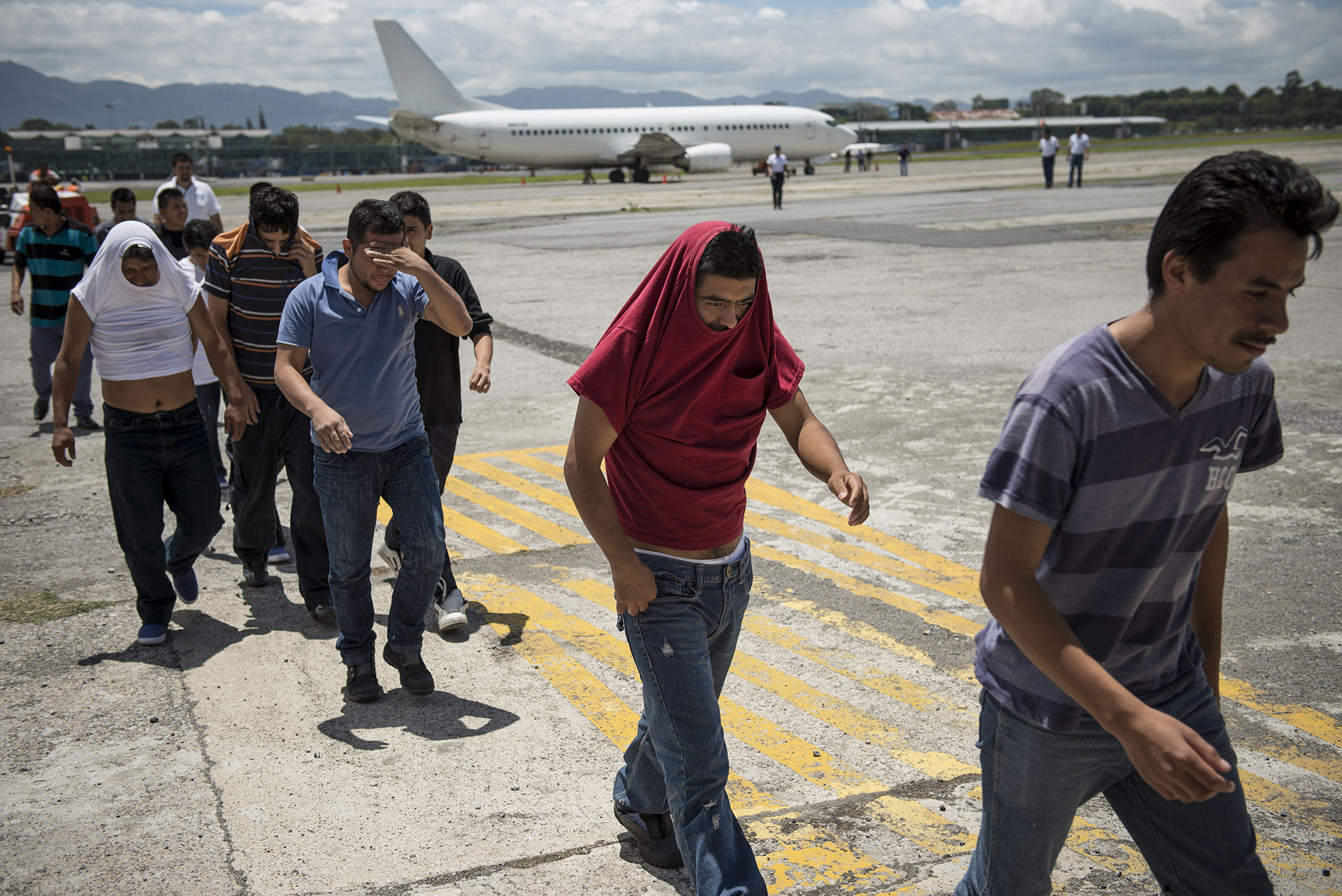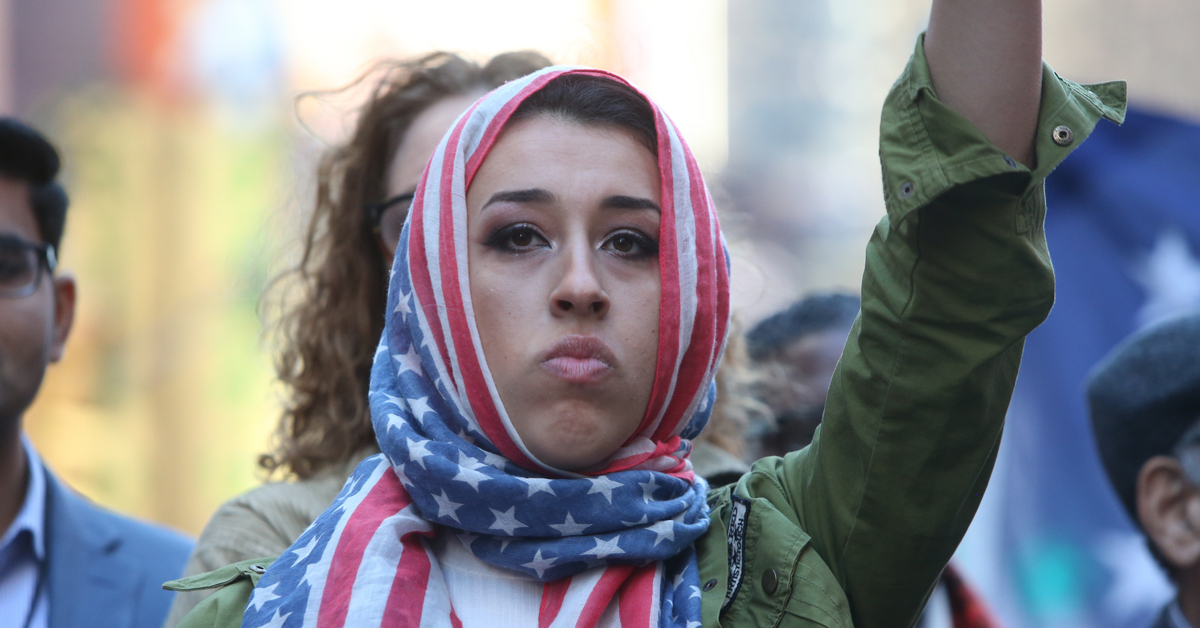Around 20 immigrant New Yorkers protested in front of the office of Senator Kirsten Gillibrand (D-NY) on Friday evening on Third Avenue to demand her support for a path to citizenship for millions of individuals without status be included in the budget reconciliation package.
The protest was organized by Movement for Justice in El Barrio (MJEB), an East Harlem organization which consists primarily of immigrant mothers who are constituents of Gillibrand. “We had a Zoom meeting with Gillibrand’s office back on August 18th and have been waiting for her to get in touch with us regarding her support for citizenship. They have been giving us excuses,” said attendee and East Harlem resident Magadelna, 39, a Mexican national who chose to withhold her last name.
Many attendees held signs saying “support citizenship,” and also shouted phrases like “Gillibrand, listen to us — we are here fighting.”
The gathering is one of many ongoing protests around the country from organizations and immigrant communities that have been demanding Democrats to ignore a Senate ruling against including a path to citizenship in immigration provision of the budget.
In September of this year, the Senate Parliamentarian, Elizabeth MacDonough, rejected the Democrats’ proposal to include a path to citizenship for Dreamers, farmworkers, essential workers and some workers with Temporary Protected Status, citing that the implications of such policy change exceeded what could be passed through this process, what they are calling Plan A.
Later that month, the Democrats asked MacDonough to review their Plan B, which would change the immigration registry, a law that allows individuals who have been in the country since 1972 to apply for citizenship. MacDonough also rejected that plan, and as a result, Plan C has been in the works which could provide deportation protection and five-year work permits to immigrants who have lived in the U.S for at least a decade.
However, immigration advocates and community members have demanded the Democrats overrule the decision of the parliamentarian and to keep the original proposal in the reconciliation budget. Since October 5th, 2021, members of NICE, Make The Road NY, and other organizations, have continuously camped out in front of Senate Majority Leader Chuck Schumer’s home at 9 Prospect Place to put pressure on the democratic leader to keep the citizenship component in the proposal.
“Plan C is not enough”
61-year-old Maria Mercado, a spokesperson and member of the leadership committee at MJEB, said that she is fighting for the undocumented people the same way that people fought for her when she was undocumented.
“We have to keep pressuring our representatives. Most have responded to us, but we have not heard anything back from Gillibrand,” she said.
Originally from Nicaragua, she arrived in East Harlem 34 years ago and has been with the organization for more than 10 years, and was able to obtain her U.S. citizenship back in 1997. “The senators know that we are part of this country, that we know we do the jobs that Americans do not want to do. Plan C is not enough… all the presidents promised something. This one promised a lot, so we have to make sure they can keep their promises,” Mercado told Documented in a phone call.
补偿终止但盗窃不止!纽约近9千起粮食券被盗案难获赔
Although Mercado works forty hours a week, as a home attendant and as a house cleaner, she mentions that her commitment for undocumented immigrants pushes her to continue being an active player in the community. Two weeks ago she took a trip to Washington, D.C., to participate in the protests and meet with certain representatives. On September 21st, she participated in the march organized by the We Are Home coalition, where numerous organizations gathered at the U.S. Capitol to welcome back Congress as they returned from the August recess.
Juan Haro, the director of MJEB, told Documented at the protest that their efforts will continue until a concrete solution passes for the immigrant community.
“If it does not happen now, when we are still going through a pandemic, when day in and day out we have demonstrated that essential workers have been sacrificing their lives on a daily basis, then what will happen years down the line when civil society begins to forget their efforts?” he said.
Also Read: The Secret Price of a Life















